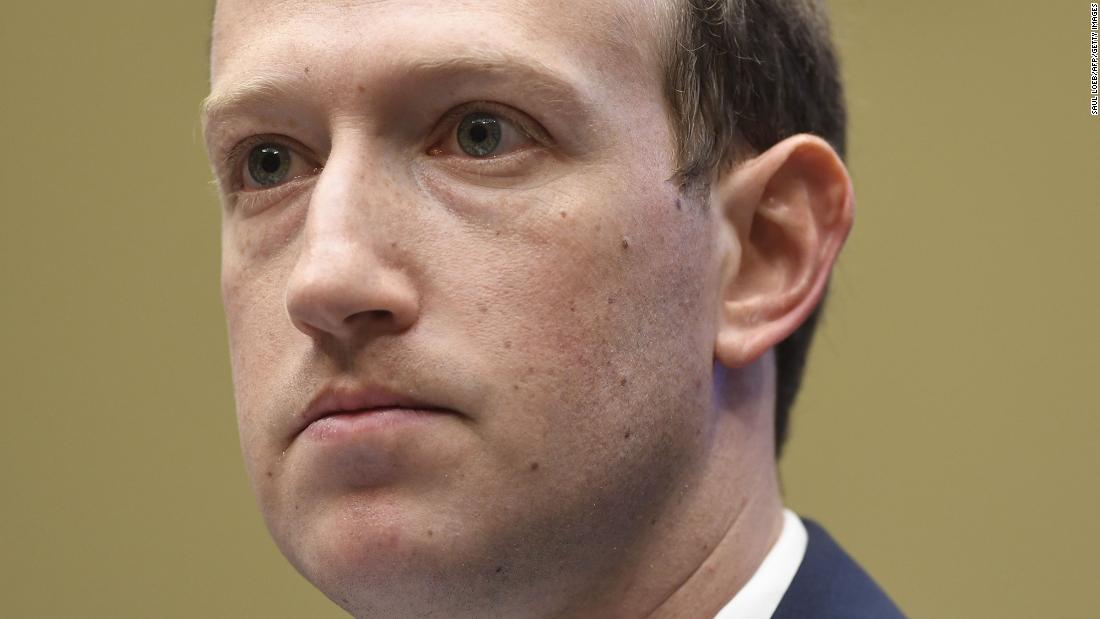The reports from CNN, and the other outlets that are part of the consortium, follow a month of intense scrutiny for the company. The Wall Street Journal previously published a series of stories based on tens of thousands of pages of internal Facebook documents leaked by Haugen. (The consortium’s work is based on many of the same documents.)
All of this raises an uncomfortable question for the company: Is Facebook actually capable of managing the potential for real-world harms from its staggeringly large platforms, or has the social media giant become too big not to fail?
Facebook tries to turn the page
Facebook, for its part, has repeatedly tried to discredit Haugen, and said her testimony and reports on the documents mischaracterize its actions and efforts.
“At the heart of these stories is a premise which is false,” a Facebook spokesperson said in a statement to CNN. “Yes, we’re a business and we make profit, but the idea that we do so at the expense of people’s safety or wellbeing misunderstands where our own commercial interests lie.”
Despite the Journal’s report last month, CNN last week identified disturbing content linked to the group on Instagram, including photos of guns, and photo and video posts in which people appear to have been shot or beheaded. After CNN asked Facebook about the posts, a spokesperson confirmed that multiple videos CNN flagged were removed for violating the company’s policies, and at least one post had a warning added.
“Facebook is extremely thinly staffed … and this is because there are a lot of technologists that look at what Facebook has done and their unwillingness to accept responsibility, and people just aren’t willing to work there,” Haugen said in a briefing with the “Facebook Papers” consortium last week. “So they have to make very, very, very intentional choices on what does or doesn’t get accomplished.”
Facebook has invested a total of $13 billion since 2016 to improve the safety of its platforms, according to the company spokesperson. (By comparison, the company’s annual revenue topped $85 billion last year and its profit hit $29 billion.) The spokesperson also said Facebook has “40,000 people working on the safety and security on our platform, including 15,000 people who review content in more than 70 languages working in more than 20 locations all across the world to support our community.”
“We have also taken down over 150 networks seeking to manipulate public debate since 2017, and they have originated in over 50 countries, with the majority coming from or focused outside of the US,” the spokesperson said. “Our track record shows that we crack down on abuse outside the US with the same intensity that we apply in the US.”
Still, the documents suggest that the company has much more work to do to eliminate all of the many harms outlined in the documents, and to address the unintended consequences of Facebook’s unprecedented reach and integration into our daily lives.
An uncertain future
In the meantime, the company appears to be quickly losing trust — not only among some of its users and regulators, but internally, as well.
Several of the internal documents point to concerns among Facebook employees about the company’s actions, including one December 2020 post on Facebook’s internal site about attrition on the company’s integrity team in which an employee notes in a comment, “Our recent Pulse results show confidence in leadership has declined across the company.” (Pulse surveys are often used by companies to gauge employee sentiment on certain topics.)
The good news for Facebook: Haugen, and the team supporting her, aren’t aiming to shut down or break up the company. During her Senate testimony, Haugen repeatedly told lawmakers that she was there because she believes in Facebook’s potential for good, if the company is able to address its serious issues. Haugen even said she would work for Facebook again, if given the chance. She suggested that Congress give the company the chance to “declare moral bankruptcy and we can figure out how to fix these things together.”
“The most interesting thing I discovered as I read these documents is how extraordinary the company is,” Lawrence Lessig, a Harvard Law School professor and strategic legal adviser to Haugen, told CNN. “The company is filled with thousands of thousands of Frances Haugens … who are just trying to do their job. They are trying to make Facebook safe and useful and the best platform for communication that they can.”
What remains to be seen is how much Facebook will change in response to the revelations from current and future whistleblowers, especially if its advertising-fueled business continues to chug along unimpeded, as it has so far. Will it agree to the kind of transparency and cooperation that Haugen, regulators and others have called for? Or will it simply continue with business as usual under a new name?

